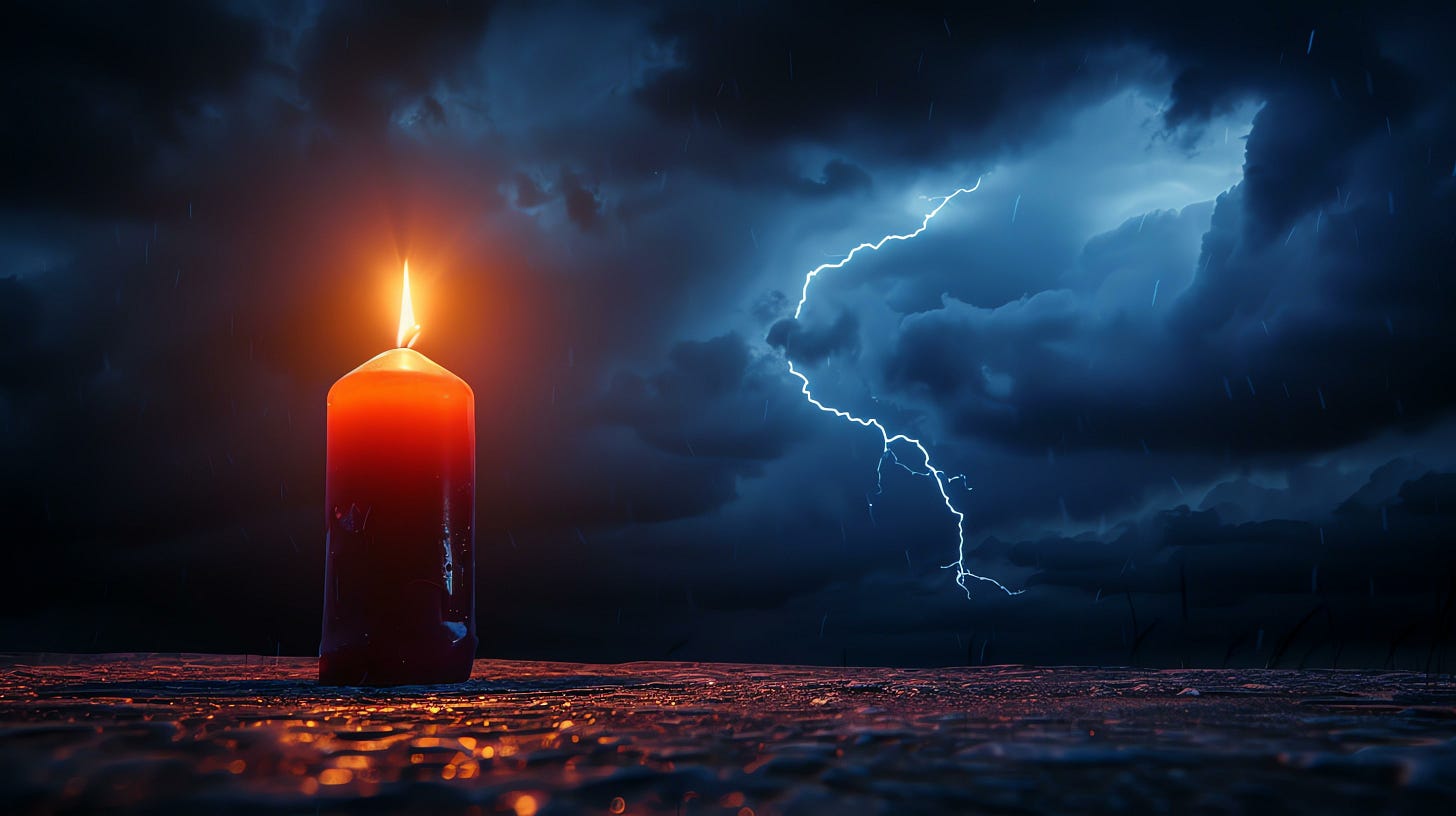Tapping Into Eternity
Explore the timeless connection between Miketz and Chanukah, uncovering the sparks of clarity and the eternal light that guide us through life’s darkness.
A number of years ago, we took a trip to Mitzpe Rimon. We enjoyed the majestic crater, the ibex roaming freely, and, of course, the drive in the pitch dark through the desert to see the stars and constellations without the pollution of light. It was an interesting lesson about how light can pollute our worldview and prevent us from seeing the wonders of creation. This is one of the things that were taken for granted before artificial lighting became widespread in the late 19th century.
On the way home, we witnessed a wondrous spectacle. Driving through the desert, it was quite dark, cloudy, and a bit rainy. As we climbed towards Yerushalayim, the clouds obscured the view. The city wasn’t visible at all. But then, a dazzling lightning storm began. Every few minutes, bolts of lightning lit up the sky, cutting through the darkness. For brief seconds, we saw Yerushalayim and the Judean Desert in breathtaking clarity. It felt otherworldly, like we were being given a glimpse…




